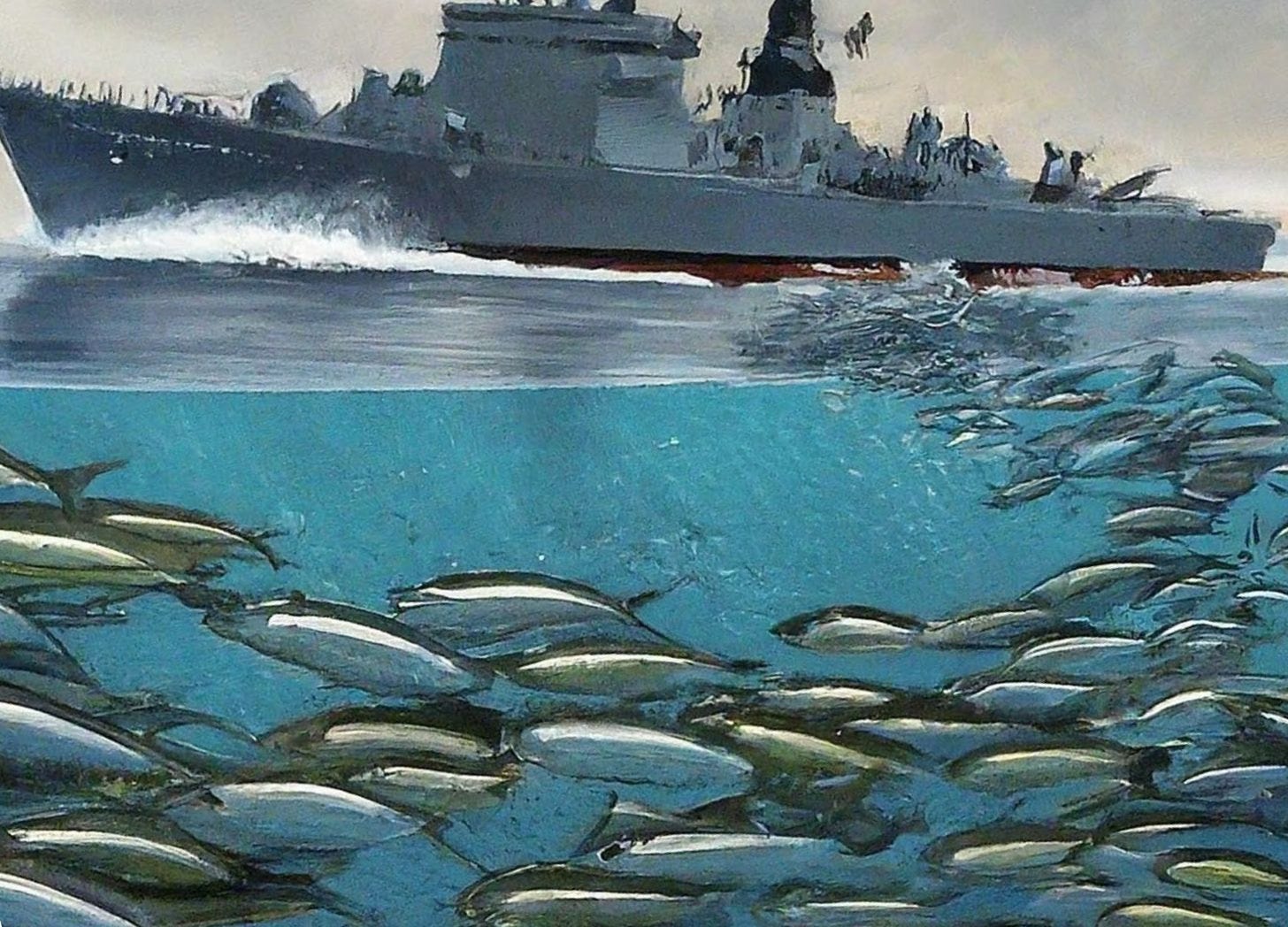Luxembourg Announces Launch of Sustainable Navy
Past defence efforts have involved purchasing planes (kept in Belgium), secure satellite communications, and ensuring the army receives its annual delivery of Christmas muffins on time. And now?
As Europe ramps up its defence efforts sans America, landlocked Luxembourg has decided to do its part. Historically, its defence spending has involved purchasing planes (kept in Belgium), investing in satellite communications, and ensuring the army receives its annual delivery of Christmas muffins on time.
But now, the dinky duchy has unveiled its pièce de résistance: a naval fleet that will be the envy of the world—for its sustainability, if not its seaworthiness.
Not only will Luxembourg’s ships be powered using clean fuel. The fuel will be so clean and innovative that Luxembourg will be the first country to use it.
Enter: The Fish-Towed Fleet
Rather than relying on outdated concepts like "propellers" or "engines," Luxembourg will harness genetically enhanced, ultra-strong fish (such as mutant catfish or super-intelligent eels) to tow its boats.
Why fish? A few reasons:
They evade radar because, well, they’re fish.
They don’t complain about overtime.
They eat whatever they’re given (except paperwork—see below).
“Luxembourg spent €696 million on defence in 2024, equivalent to 0.83% of GDP,” said defence spokesperson Nick Tamère, adding: “Strong defences aren’t necessarily about big spending. We believe our fish provide a low-cost solution. Plus, they’re easy to scaele up!”
When this journalist asked what would happen if the new navy encountered a fishing fleet, he smacked his forehead and said “Ah freck” before reeling off what seemed like an entirely improvised plan b.
If the fish fail, Luxembourg will deploy Plan Oie (Operation Goose), a trained squadron of extremely aggressive, honking geese to harass enemy ships.
The idea emerged over a boozy lunch at Bacchus, where Luxembourg’s defence committee brainstormed the country's military future. Several other promising strategies were regrettably scrapped, including:
Origami Battleships: Thousands of highly detailed paper boats, made from unfinished public sector paperwork, would be released onto lakes, rivers, and enemy coastlines as psychological warfare. It was feared, however, that civil servants would seize them in an effort to complete overdue forms.
The Cow Navy: A bold initiative involving cows strapped to logs for buoyant, near-silent war rafts. This plan was abandoned when it was discovered that cows can neither swim nor row. Also, no one was sure whether it constituted a navy or just an exceptionally slow-moving burger supply chain.
The Paddleboard Commandos: Luxembourg’s top athletes would infiltrate enemy ports by silently paddling in on stand-up paddleboards, armed with baguettes (for close combat) and diplomacy (for finishing moves). The plan collapsed when it became clear that all of Luxembourg’s paddleboards were reserved for tourists at Upper Sûre Lake, and the athletes were too busy training for an Ironman to care.
For now, the fish-powered fleet remains the jewel in Luxembourg’s naval crown. Only time will tell if it can revolutionise modern warfare—or if it ends up as an expensive, eco-friendly sushi experiment.
Reader’s note: this is satire!






